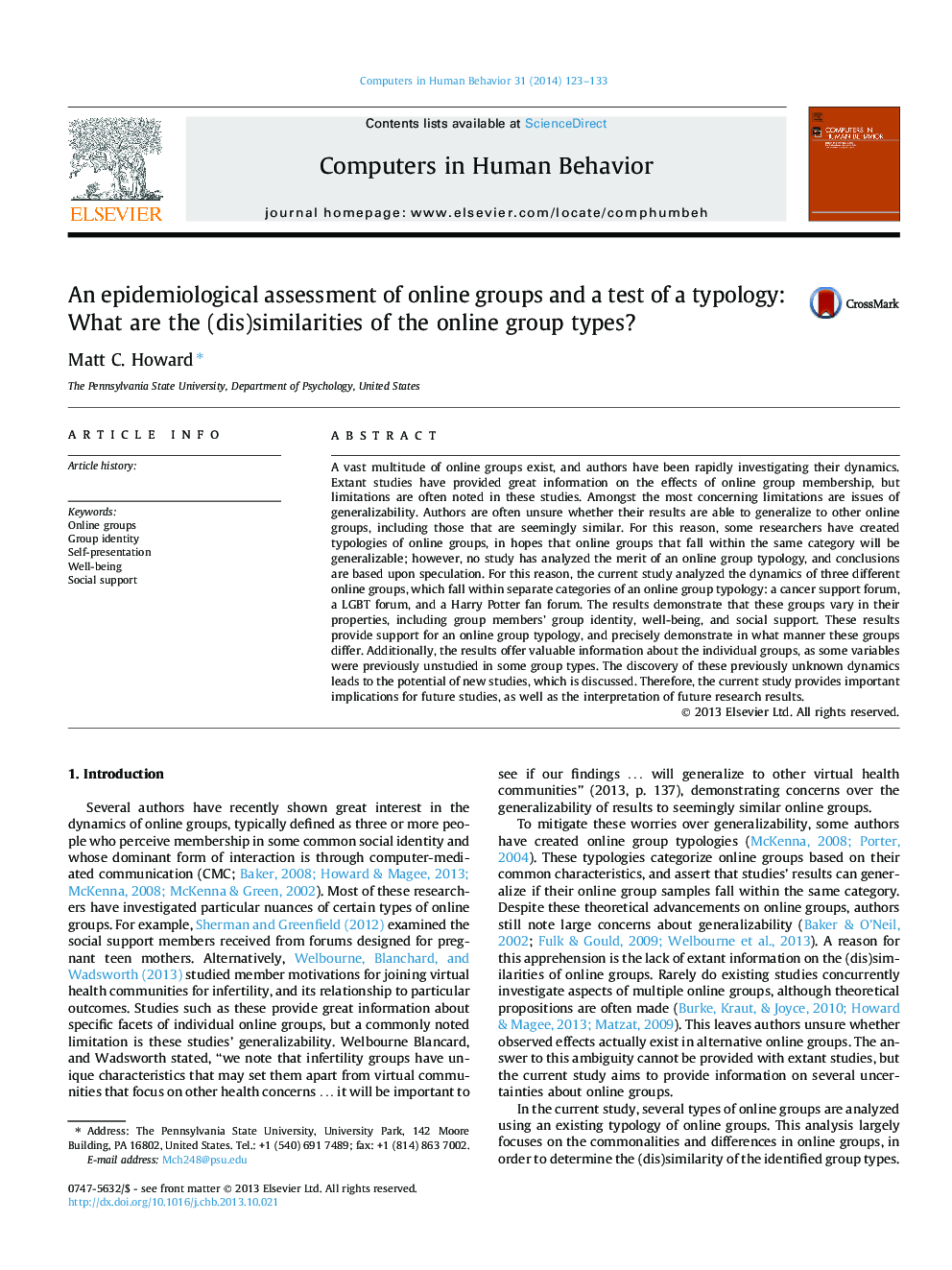| کد مقاله | کد نشریه | سال انتشار | مقاله انگلیسی | نسخه تمام متن |
|---|---|---|---|---|
| 6839430 | 618452 | 2014 | 11 صفحه PDF | دانلود رایگان |
عنوان انگلیسی مقاله ISI
An epidemiological assessment of online groups and a test of a typology: What are the (dis)similarities of the online group types?
ترجمه فارسی عنوان
ارزیابی اپیدمیولوژیک گروه های آنلاین و آزمون نوعی شناسی: شباهت های (گروه) انواع گروه های آنلاین چیست؟
دانلود مقاله + سفارش ترجمه
دانلود مقاله ISI انگلیسی
رایگان برای ایرانیان
کلمات کلیدی
گروه های آنلاین، هویت گروه، خود ارائه، تندرستی، حمایت اجتماعی،
موضوعات مرتبط
مهندسی و علوم پایه
مهندسی کامپیوتر
نرم افزارهای علوم کامپیوتر
چکیده انگلیسی
A vast multitude of online groups exist, and authors have been rapidly investigating their dynamics. Extant studies have provided great information on the effects of online group membership, but limitations are often noted in these studies. Amongst the most concerning limitations are issues of generalizability. Authors are often unsure whether their results are able to generalize to other online groups, including those that are seemingly similar. For this reason, some researchers have created typologies of online groups, in hopes that online groups that fall within the same category will be generalizable; however, no study has analyzed the merit of an online group typology, and conclusions are based upon speculation. For this reason, the current study analyzed the dynamics of three different online groups, which fall within separate categories of an online group typology: a cancer support forum, a LGBT forum, and a Harry Potter fan forum. The results demonstrate that these groups vary in their properties, including group members' group identity, well-being, and social support. These results provide support for an online group typology, and precisely demonstrate in what manner these groups differ. Additionally, the results offer valuable information about the individual groups, as some variables were previously unstudied in some group types. The discovery of these previously unknown dynamics leads to the potential of new studies, which is discussed. Therefore, the current study provides important implications for future studies, as well as the interpretation of future research results.
ناشر
Database: Elsevier - ScienceDirect (ساینس دایرکت)
Journal: Computers in Human Behavior - Volume 31, February 2014, Pages 123-133
Journal: Computers in Human Behavior - Volume 31, February 2014, Pages 123-133
نویسندگان
Matt C. Howard,
